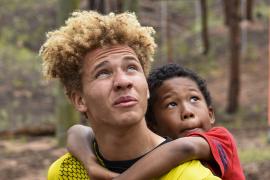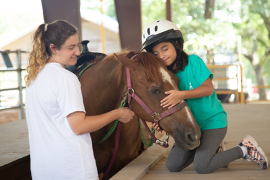I am a camp guy. I spent 10 summers growing up at various overnight camps as a camper, counselor, dishwasher, and unit head. As ACA research has shown, these experiences provided me with some of my best friends (including my brother-in-law), mentors, valuable leadership skills, and work experience. It also helped shape my personal values, career choices, and a sense of how to change lives on a limited budget. I’ve tried to put it all to good use as I built a career in nonprofit leadership with groups such as Hoop & Leaders, Up2Us Sports, and now as president of the After-School All-Stars National Network (ASAS).
ASAS provides free, daily comprehensive afterschool programs to nearly 75,000 low-income students at 400 Title I school sites in 19 major cities across the United States. We employ nearly 5,000 staff, most of whom are part-time and currently in or recently out of college. One of the biggest challenges many after-school programs like ours face is around hiring and retention of part-time employees. Often, we don’t have enough funding in place to offer full summer programming for all our students and enough paid hours to retain our best trained, most effective, and experienced part-time staff. As a result, we let them go as they find other jobs and then try and hope to bring them back in the fall with mixed success.
Consistent, positive, caring youth adult relationships are the basis for success of all youth development work, and we are working on piloting many new retention strategies. Simultaneously, we hear from our summer camp friends in the ACA community who are in peak hiring mode that some of them are also challenged to find enough well-trained and qualified staff experienced in working with youth. Their pinch is especially hard felt this year with changes being made to the federal temporary worker programs, impacting their ability to bring in more staff from other countries.
One simple but rarely implemented solution would be for those in the organized after-school field to build and broker more formalized partnerships with nearby ACA-accredited summer camps. As a pilot, a group like ASAS can identify some of our best part-time staff across the US looking for more hours and connect them to summer camp directors looking to hire for the summer. We benefit by helping to identify and match our most interested and highest-performing staff with a youth development camp experience, and they would then be able to bring back the additional training and experience to our programs during the next school year. There are many more potential areas of collaboration opportunities we can promote between the thousands of official afterschool programs and ACA camps. There are many reasons to break down the artificial silos between the like-minded summer camp and after-school communities, and piloting and formalizing a joint employee sharing and training pipeline would be a great place to start.
For any camps interested in discussing hiring opportunities for current ASAS staff, please reach out to Michael Berry at Michael@as-as.org.
Aaron Philip Dworkin is the president of the After-School All-Stars National Network and based in Washington, DC.
Photo courtesy of The Woodlands Foundation in Wexford, PA




